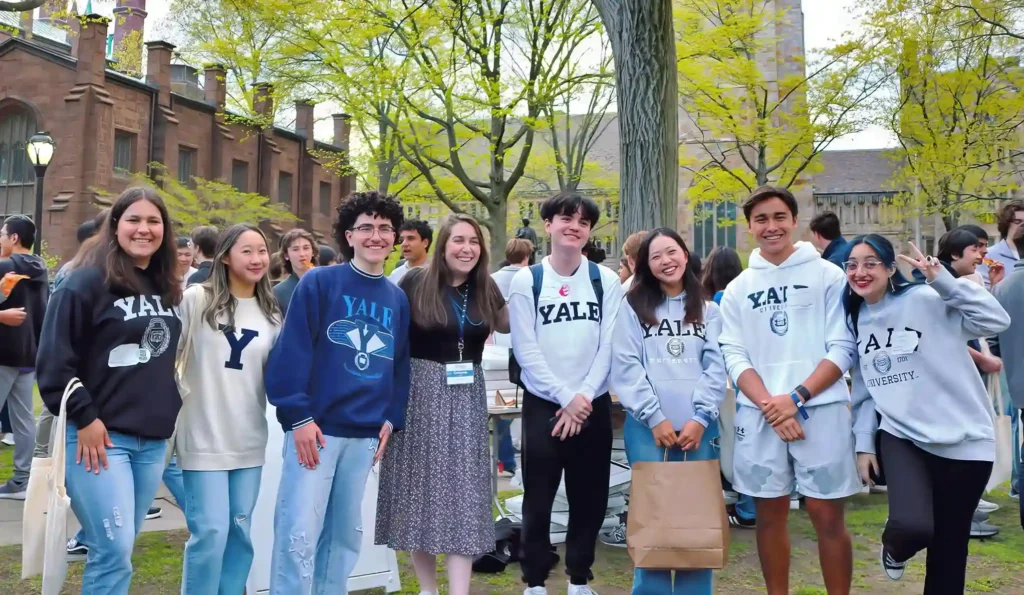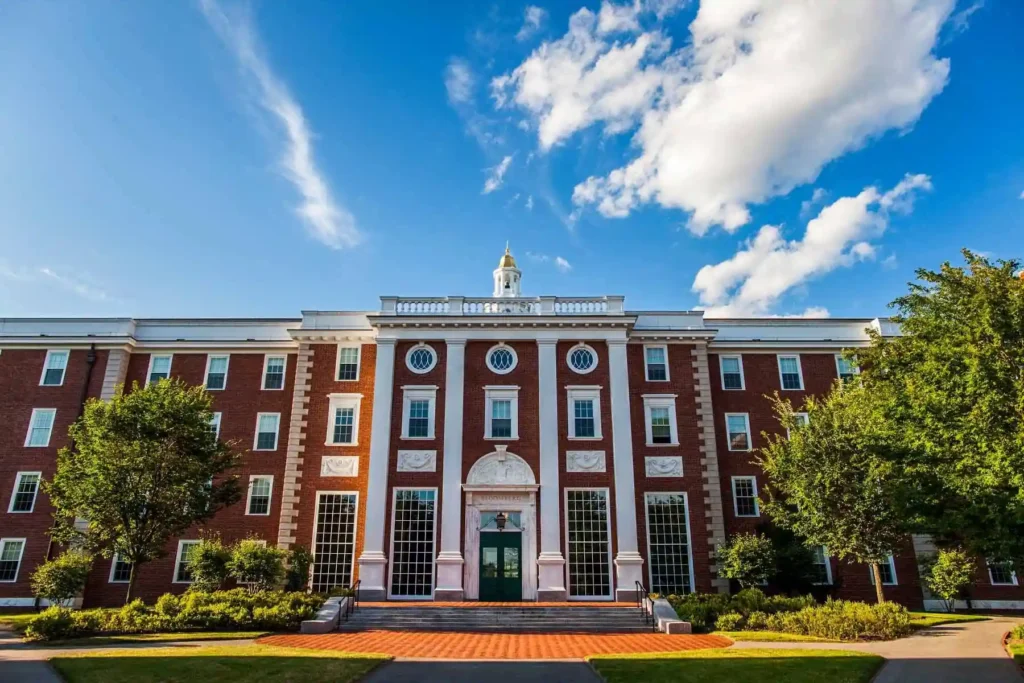The top private universities in America are known for strong academics, selective admissions, and great career outcomes.
The top private colleges in America – like Stanford University, Johns Hopkins University, and the Massachusetts Institute of Technology – stand out for research, teaching, and long-term success.
These schools attract motivated students ready to work hard and grow. At CollegeCommit, we help families plan a clear and confident path to reach these universities.
We support students who want to reach their highest potential. The top private universities offer challenge, strong results, and life-changing opportunities.
With over 20+ years of combined experience, our team builds smart plans to help students succeed in every part of the admissions process.
Table of Contents
ToggleKey Takeaways
- Research using national graduate data shows that private college graduates earn about 9% more than public university graduates on average, though this difference decreases when accounting for background and field of study.
- Stanford University, Johns Hopkins University, and the Massachusetts Institute of Technology lead national rankings for academics and career results.
- Data from the U.S. Department of Education and NCES show graduates earn about 35% more than their public school peers.
- Families should focus on fit, student goals, and financial aid – not rankings alone.
- CollegeCommit offers expert help for students applying to Ivy League and Top 20 universities.
What Makes the Best Private Colleges in America Stand Out
The best private colleges in America are research universities known for strong teaching and vibrant student life.
Schools like Harvard University, Yale University, and the California Institute of Technology are respected worldwide. According to the National Center for Education and the Center for Education Statistics, these colleges show excellent graduation rates and high job success.

Key Data Snapshot
Across the Top 20 private universities, acceptance rates are 5%–14%, graduation rates are over 90%, and most have a 7:1 student-to-faculty ratio.
According to a senior-project study using National Survey of College Graduates data, mean annual salaries were about 9.5% higher for private-college graduates than for public-college graduates, and no significant advantage remained after correcting for selection bias.
Select U.S. Universities — Admissions, Cost, Outcome
| University | Acceptance Rate | Avg. Cost (After Aid) | Graduation Rate | Early Career Salary |
|---|---|---|---|---|
| Stanford University | 4% | $18,000 | 93% | n/a |
| Johns Hopkins University | 6% | $22,844 | 95% | n/a |
| Massachusetts Institute of Technology | 5% | $21,519 | 96% | n/a |
| Rice University | 8% | $20,587 | 96% | n/a |
| Washington University in St. Louis | 12% | $22,440 | 94% | n/a |
Numbers reflect the most recent figures available on BigFuture and official financial-aid pages. Costs are average net price after aid where provided.
Sources
- Stanford — Acceptance rate, grad rate, average cost after aid: College Board BigFuture — Stanford University (Overview) | BigFuture — Stanford Tuition & Costs
- Johns Hopkins — Acceptance rate, grad rate, average cost after aid: BigFuture — Johns Hopkins (Overview) | BigFuture — Johns Hopkins Tuition & Costs
- MIT — Acceptance rate, grad rate, average cost after aid: BigFuture — MIT (Overview) | BigFuture — MIT Tuition & Costs | MIT SFS — Annual Student Budget
- Rice — Acceptance rate, grad rate, average cost after aid: BigFuture — Rice (Overview) | BigFuture — Rice Tuition & Costs | Rice University — Cost of Attendance
- Washington University in St. Louis — Acceptance rate, grad rate, average cost after aid: BigFuture — WashU (Overview) | BigFuture — WashU Tuition & Costs | WashU — Costs
- Salary methodology reference (metric varies by source; not standardized across schools): PayScale — College Salary Report
Disclosures
“Early Career Salary” is marked “n/a” for all rows. A consistent, verifiable public figure by school is not available across a single standardized federal source. Third-party estimates (e.g., PayScale’s College Salary Report) vary by methodology, major mix, and response samples and may change frequently. To avoid mixing non-comparable numbers, this column is withheld.
CollegeCommit helps families use data like this to pick schools that fit their student’s goals and budget.
Top 10 Private Colleges
The top 10 private universities in the USA – such as Stanford University, Johns Hopkins University, Yale University, and the Massachusetts Institute of Technology in Cambridge, MA – offer world-class education and research. These schools are known for their strong academics, small class sizes, and active campus communities.
Here are ten of the most respected private colleges in the US:
- Harvard University – Cambridge, MA
- Stanford University – Stanford, CA
- Massachusetts Institute of Technology (MIT) – Cambridge, MA
- Yale University – New Haven, CT
- Princeton University – Princeton, NJ
- Columbia University – New York, NY
- University of Chicago – Chicago, IL
- Johns Hopkins University – Baltimore, MD
- California Institute of Technology (Caltech) – Pasadena, CA
- Duke University – Durham, NC
These top private colleges in the United States emphasize academic excellence, mentorship, and liberal arts education.
According to data from the National Center for Education Statistics (NCES) and other national reports, graduates from leading private institutions tend to report higher median earnings and strong graduate school placement rates compared to national averages.
At CollegeCommit, we help families understand that rankings are only one part of the college search. We also teach students how to stand out in college applications by writing honest and powerful essays that highlight their strengths.
Regional Highlights
The top private colleges in America are spread across major cities like Los Angeles, St Louis, and Cambridge, MA. Each city offers unique advantages – California leads in tech and innovation, while the Northeast focuses on research and tradition.
We help families compare regions based on career paths, internships, and lifestyle. Students interested in science often choose private schools near research hubs, while art students may prefer areas like New York or Chicago.
Preparing for Admission
Getting into US private colleges and universities takes time and planning. Learning what you need to get into college helps families set goals early.
We work with students from 8th to 12th grade to build strong academics and activities. We guide students on courses, test schedules, and activities that match their goals.
Our team helps students with the Common App essay, showing them how to tell their story with honesty and confidence. We guide and edit, but students always write their own work.

Choosing the Right Private University
Choosing among top-ranked private universities means finding a balance between academics, culture, and financial aid. Many leading schools offer strong aid programs for qualified students.
CollegeCommit’s Admissions Strategy
Every student works with a lead consultant who manages all mentoring and planning. This ensures focus and direction. Our team includes essay coaches, interview trainers, and test prep experts. We support all major platforms, including the Common Application.
Our advisors help families through every university application step – from early planning to final submission – so each detail is done well.
We don’t offer general help – we provide structure, support, and confidence at every stage.
Your Next Step in the Admissions Journey
The top private colleges in America set the standard for learning and leadership. These universities prepare students to impact the world. At CollegeCommit, we guide families through every step with experience, care, and a proven system.
Ready to transform uncertainty into opportunity? Join our upcoming cohort at CollegeCommit: Where Preparation Becomes Placement.


